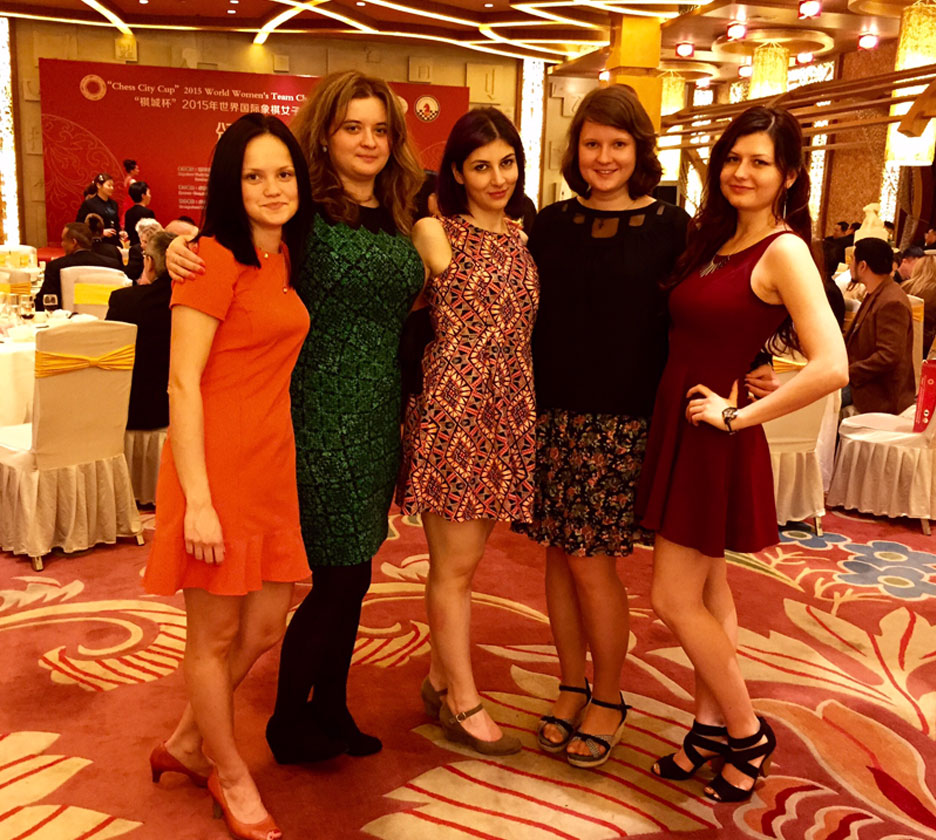Women in Chess
Women in Chess


Chess is the perfect case-study for assessing female dominance in a male-dominated field because the results are transparent and straightforward. Chess has an objective metric in terms of ratings, which is a numerical measure of strength based on results against opponents of all genders. Rankings are produced based on the ratings.
Although the number of girls competing in youth events is roughly equal, around the high school age, girls tend to drop out of chess. Only 12 percent of the membership of the governing U.S. chess organization is female, and the largest portion of that female membership is in the "under-12" demographic. In the U.S. there are only about 900 nationally-ranked chess masters, which represents the top 2% of the chess-playing population. Of those, only 25 are women - less than 3% - according to the March 2017 top players lists. Worldwide, women comprise only about 2% of grandmasters. Among the group of top female players, only one - the Hungarian trailblazer GM Judit Polgar - has ever broken the world top ten chess-player rankings and has ever qualified for the general World Championship.
Compare these statistics to the lamentable numbers across other industries.
Women Across Male-Dominated Fields
Field
National Chess Masters
Worldwide Grandmasters
Managing Partners of Top Law Firms
Recipients of Small-Business Loans
Protagonists of Top Hollywood Films
Directors of Top Hollywood Films
%
3
2
5.8
17
1.5
7
4.4
29
7.7
4
35*
*Following the implementation of the revolutionary blind audition, which led to a drastic spike from 5% in the 1970s.
As chess is not a physical sport (although it requires plenty of stamina at major open tournaments in order to last two matches a day that can drag on for up to 6 hours each), most people are surprised to hear that women have their own rankings, titles, prizes, and tournaments. There can be little justification offered for this division based on chess prowess alone. The "women's" categories function as affirmative action programs. With so few women competing, and even a smaller number competing at a high level, the separate women's events help to attract and keep women playing.
The issue of female-only events and titles is controversial to the point of spawning hostility. It is not uncommon for male players to complain that women get preferential treatment by being able to qualify for women's-only events, when the men have to compete at a higher level to get invited to the parallel open event (which typically has double the prize fund).
Top Grandmaster Nigel Short, who previously challenged Garry Kasparov for the World Championship, brazenly wrote a piece degrading women's chess ability. The article was published in one of the world's leading chess publications, New In Chess, and was later syndicated by mainstream sources. According to Short, women are hard-wired to be biologically inferior in intellectual pursuits such as chess.
"Men and women's brains are hard-wired very differently, so why should they function in the same way? I don't have the slightest problem in acknowledging that my wife possesses a much higher degree of emotional intelligence than I do. Likewise, she doesn't feel embarrassed in asking me to manoeuvre the car out of our narrow garage. One is not better than the other, we just have different skills. It would be wonderful to see more girls playing chess, and at a higher level, but rather than fretting about inequality, perhaps we should just gracefully accept it as a fact."
Short attributed female drop-out rates in chess to the fact that women wouldn't want to stick around a pursuit they are not naturally equipped for. He chided tournaments with women's prize funds for their "favouritism." He dubbed GM Judit Polgar as an outlier to an otherwise obvious norm of female inferiority. His points are blunt, but sadly not completely shocking given deep-rooted sexism ever-present in the background of male-dominated competition.
Although the article received widespread criticism and backlash, it is a shame that we still live in a time when Short's points are still part of the dialogue. It is no accident, that from experience, women players are resilient both on and off the board. It takes a certain hardened demeanor to persist in a male-dominated environment.
For more about strategies for overcoming entrenched social conventions and biases, check out Reality Check.